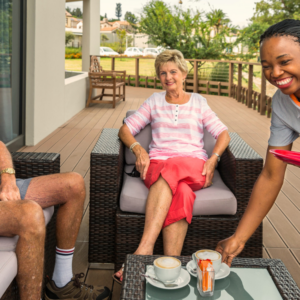
World Stroke Day 2019: Don’t be the one
Each year, on the 29th of August, World Stroke Day focuses attention on a disease that is currently “the leading cause of disability worldwide and the second leading cause of death.” This year’s campaign highlights the fact that one in four people will suffer a stroke in their lifetime, and calls for all of us to take charge of our health in order to avoid becoming a statistic.
What is a stroke?
According to Mayo Clinic, “a stroke occurs when the blood supply to part of your brain is interrupted or reduced, depriving brain tissue of oxygen and nutrients.”
- Ischemic stroke
Ischemic stroke occurs “when the arteries to your brain become narrowed or blocked, causing severely reduced blood flow” (mayoclinic.org) and accounts for roughly 80 percent of all strokes.
- Haemorrhagic stroke
Haemorrhagic stroke occurs “when a blood vessel in your brain leaks or ruptures” (mayoclinic.org) and can be triggered by conditions like hypertension or an aneurysm.
While the effects of stroke are devastating and survivors can be left facing “significant challenges that include physical disability, communication difficulties, changes in how they think and feel, loss of work, income and social networks,” (worldstrokecampaign.org) the good news is that almost all strokes are preventable.
Why is World Stroke Day so important?
According to World Stroke Day, in 2019 alone, 14.5 million people will suffer a stroke, with 5.5 million people dying as a result. The situation in South Africa is just as frightening, with 10 people suffering a stroke every hour according to The Heart and Stroke Foundation South Africa.
How can you reduce your risk?
High blood pressure, high cholesterol, diabetes, physical inactivity, being overweight or obese, smoking, drinking, poor mental health and family history are just some of the risk factors for stroke. Here are a few of the ways you can reduce your chance of being the ONE in four…
- Keep a close eye on your blood pressure and cholesterol levels and speak to your healthcare professional if they are outside the normal range.
- Exercise regularly.
- Follow a healthy diet.
- Watch your weight.
- Limit your alcohol intake.
- If you’re a smoker, quit!
Act FAST to save lives
Brain cells begin to die within minutes of a stroke, so if you ever find yourself with someone who you think may be having a stroke, act F-A-S-T to save their life:
Face – is the face drooping to one side?
Arms – is there a weakness in one arm?
Speech – is speech slurred or garbled?
Time – if these symptoms are present it is time to call emergency services.
(Source: Worldstrokecampaign.org)
For more information and to download the Stroke Riskometer, a World Stroke Foundation-endorsed app that can evaluate your stroke risk and suggest ways to reduce it, visit worldstrokecampaign.org.



